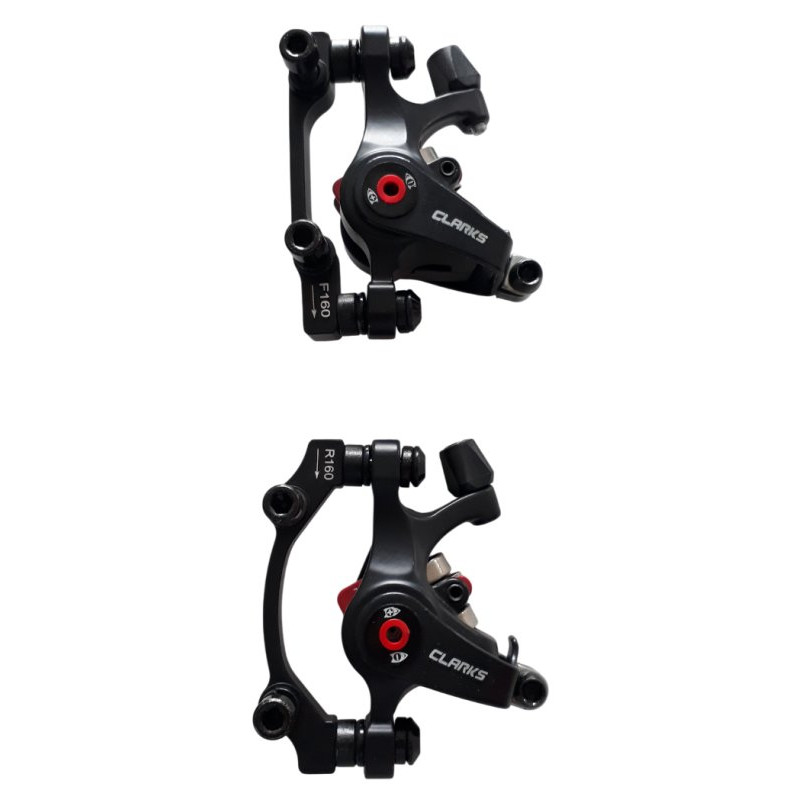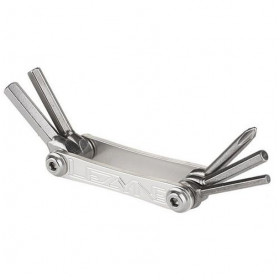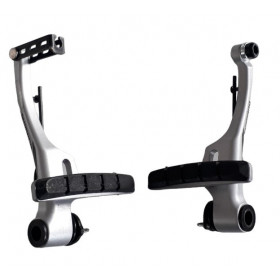 zoom_in
zoom_in
Clarks CMD-22 mechanical disc brakes
- CMD-22
- New

€39.99 VAT included
Mechanical Disc Brakes for Bicycles: Complete Guide, Brands and Features
Mechanical disc brakes are a versatile and high-performance solution for cyclists, offering excellent value for money. Whether for a road bike, a mountain bike or a gravel bike, they guarantee efficient and constant braking, whatever the conditions. Discover in this article the main brands, their characteristics, and what distinguishes mechanical disc brakes from other braking systems.
What is a mechanical disc brake?
Unlike hydraulic disc brakes, which use a fluid system to operate the pads, mechanical disc brakes operate using a steel cable connected to a brake lever. This system offers several advantages:
Ease of maintenance: No hydraulic bleeding required.Universal Compatibility: Works with standard cable brake levers.
Accessibility: Generally less expensive than hydraulic brakes.
Advantages of mechanical disc brakes
Reliability: Less sensitive to temperature variations or damage than hydraulic systems.Ease of adjustment: The cable can be easily adjusted to restore braking performance.
Durability: Pads and rotors are designed to withstand prolonged wear.
Adaptability: Suitable for a wide range of bikes, from gravel to urban bikes.
Technical characteristics to consider
Disk Size160 mm: Sufficient for road and gravel bikes.
Pad Compatibility
Organic: Quiet and adapted to dry conditions.
Mounting system
Post Mount: Direct attachment to the fork or frame.
Flat Mount: More compact standard, often used on modern road bikes.
Cable material
Stainless cables recommended to prevent corrosion and maintain consistent performance.
How to maintain your mechanical disc brakes ?
Regular cleaning: Use a specific cleaner for discs and pads to remove dust and residue.Cable adjustment: Adjust the tension to maintain optimal braking.
Checking the pads: Replace them when their thickness is less than 1 mm.
Lubrication: Apply a small amount of oil to the cables to prevent fraying.
Mechanical or hydraulic disc brakes ?
| Appearance | Mechanic | Hydraulic |
|---|---|---|
| Maintenance | Quick and fast | More complex (purge required) |
| Power | Good, but depends on the setting | Excellent, consistent |
| Cost | More economical | More expensive |
| Adaptability | Compatible with most bikes | Often specific |
Conclusion
Mechanical disc brakes remain an essential solution for cyclists looking for an efficient, economical and easy to maintain braking system. Whether you're riding in the city, on the trails, or on the road, brands like Shimano, Avid, and TRP offer quality products to suit every need. Take care of your brakes, and enjoy optimal control for your next outings!






